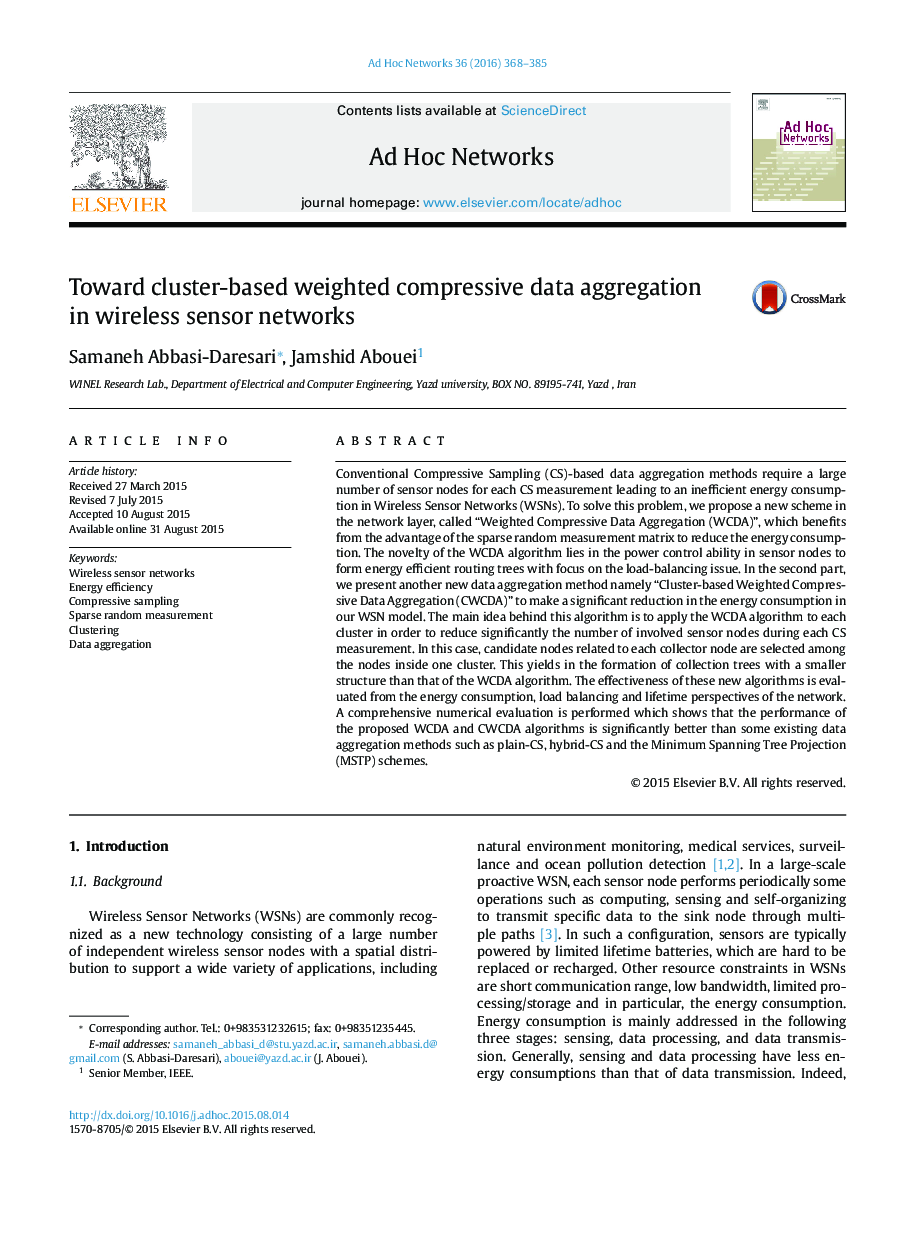| Article ID | Journal | Published Year | Pages | File Type |
|---|---|---|---|---|
| 445575 | Ad Hoc Networks | 2016 | 18 Pages |
Conventional Compressive Sampling (CS)-based data aggregation methods require a large number of sensor nodes for each CS measurement leading to an inefficient energy consumption in Wireless Sensor Networks (WSNs). To solve this problem, we propose a new scheme in the network layer, called “Weighted Compressive Data Aggregation (WCDA)”, which benefits from the advantage of the sparse random measurement matrix to reduce the energy consumption. The novelty of the WCDA algorithm lies in the power control ability in sensor nodes to form energy efficient routing trees with focus on the load-balancing issue. In the second part, we present another new data aggregation method namely “Cluster-based Weighted Compressive Data Aggregation (CWCDA)” to make a significant reduction in the energy consumption in our WSN model. The main idea behind this algorithm is to apply the WCDA algorithm to each cluster in order to reduce significantly the number of involved sensor nodes during each CS measurement. In this case, candidate nodes related to each collector node are selected among the nodes inside one cluster. This yields in the formation of collection trees with a smaller structure than that of the WCDA algorithm. The effectiveness of these new algorithms is evaluated from the energy consumption, load balancing and lifetime perspectives of the network. A comprehensive numerical evaluation is performed which shows that the performance of the proposed WCDA and CWCDA algorithms is significantly better than some existing data aggregation methods such as plain-CS, hybrid-CS and the Minimum Spanning Tree Projection (MSTP) schemes.
